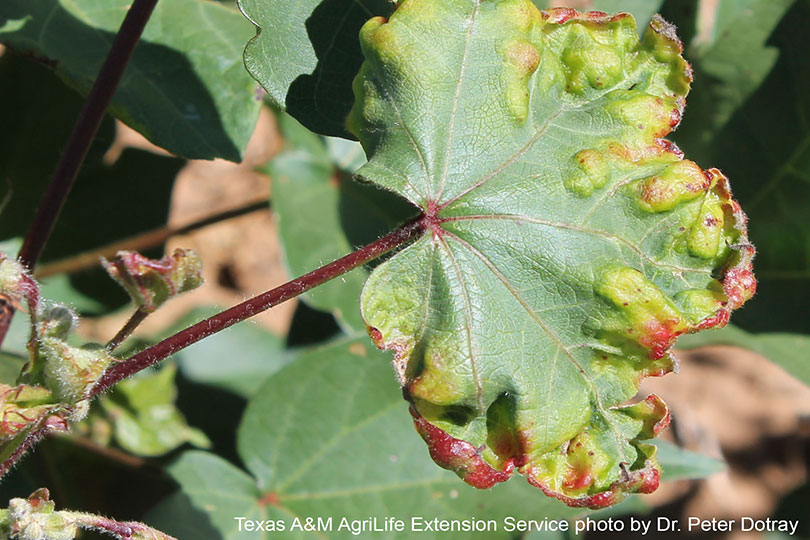By Jessica Domel
Multimedia Reporter
Texas farmers and farm workers who plan to use dicamba products in 2018 will now have to complete a mandatory training before using the herbicide.
Restrictions for XtendiMax with Vapor Grip Technology, Fexapan Plus VaporGrip Technology and Engenia herbicide changed in mid-October when the Environmental Protection Agency (EPA) met with companies registering new dicamba formulations to revise labels to reduce incidence of off-target movement during application.
New restrictions for the three products containing dicamba include: classification as a Restricted Use Pesticide, required record keeping of all applications for two years and annual mandatory auxin-specific training for every person who will apply the product to any crop.
“Mandatory record keeping was always a part of those products in Texas, but now there’s additional items that have to be recorded per the new labels that weren’t a part of the original requirements,” Dr. Scott Nolte, assistant professor and state Extension weed specialist, said.
The time of day dicamba products can be used is also restricted under the new labels.
“It’s going to be only during daylight hours,” Nolte said.
There’s also stronger language now regarding cleaning out tanks that contained one of the three listed dicamba products.
Nolte said it’s always been discussed that when using dicamba, farmers need to thoroughly clean out their sprayer, but now, there are additional directions to make sure farmers do have a clean sprayer before using dicamba.
“We want to make sure we don’t have unapproved tank mix, herbicides, inadvertently getting mixed in a tank with dicamba,” Nolte said. “Some of those products can really have a detrimental effect and increase the level of volatility of those new low volatility compounds.”
The restrictions only apply to the new dicamba formulations: Fexapan, XtendiMax or Engenia.
“These are really principles that you need to pay attention to no matter what you’re spraying—whether it’s dicamba, it’s 2-4D or really any chemistry or herbicide,” Nolte said. “You need to be mindful of off-target movement, potential drift and do your best to keep your herbicide in your field and reduce movements into your neighbors’ field.”
In Texas, there were only 10 complaints to the Texas Department of Agriculture about dicamba drift and damage.
“It wasn’t a wide spread issue. It doesn’t mean it wasn’t happening. Those were official complaints,” Nolte said.
No matter what you’re spraying, Nolte said it’s key to read and follow all label restrictions.
The required annual auxin-specific trainings started the first week of December.
To find one in your area, contact your county AgriLife Extension office.

